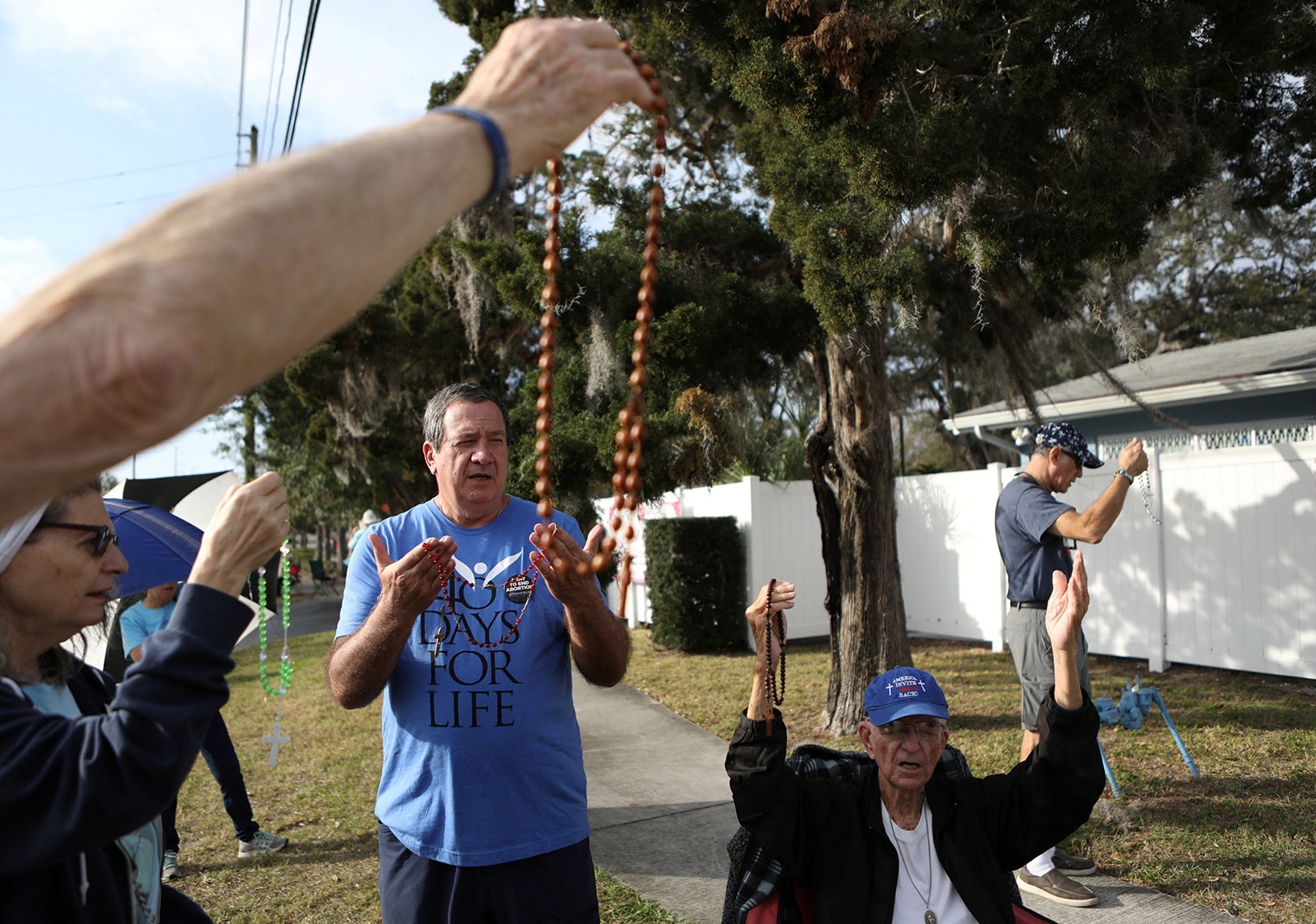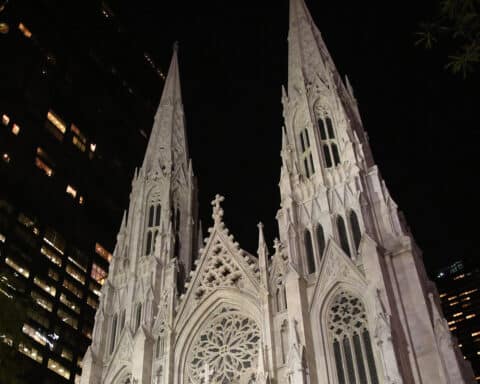TALLAHASSEE, Fla. (OSV News) — Florida’s Catholic bishops Sept. 16 alerted the faithful to an “extremely grave initiative” underway in their state that “seeks to erase pro-life protections by banning government regulation of abortion in our state constitution.”
They urged Catholics not to sign any petition to get this “pro-abortion constitutional amendment, titled Amendment to Limit Government Interference with Abortion, placed on the statewide ballot for the November 2024 election.”
“A network of abortion activists is working to gather petition signatures,” the bishops said in a statement released in Tallahassee by the Florida Conference of Catholic Bishops, their public policy arm. “Nearly 900,000 signatures” are needed and these activists “are working right now in communities across Florida to collect them.”
“This amendment is deeply concerning because it will allow all abortions to be obtained until viability and includes a broad ‘health’ loophole, essentially allowing abortion on demand up to birth,” the bishops said in their statement.
A challenge to Florida’s 15-week ban
They outlined several actions such an amendment would allow, including hindering the Florida Legislature’s ability “to protect women and children from abortion.” It also could “nullify current laws requiring parental consent before minors obtain abortions and a 24-hour waiting period prior to abortions,” they said, as well as nullify the state’s 15-week abortion ban of 2022 — currently being challenged in court — and a new six-week abortion ban signed into law in April of this year.
A legal challenge to the 15-week abortion ban is before the Florida Supreme Court, which heard oral arguments in the case Sept. 8. If the ban is upheld by the court, a six-week ban signed into law April 13 by Republican Gov. Ron DeSantis will go into effect.
In May, after DeSantis signed the six-week ban, a coalition of groups that support legal abortion launched the petition effort to amend the state constitution. Called Floridians Protecting Freedom, the coalition includes the Planned Parenthood Action Fund, Planned Parenthood’s Florida affiliates, the American Civil Liberties Union of Florida, Florida Rising and Women’s Voices of SW Florida.
“We need abortion to be explicitly named as a constitutionally protected right because until the makeup of the legislature changes, they are going to be constantly putting forward extremist anti-abortion legislation,” Amy Weintraub, of a group called Progress Florida, told local media.
Bishops urge Floridians to fight back
In their statement, the Catholic bishops urged Floridians not to sign the coalition’s petition.
“Declining to sign is not impeding the democratic process; it is taking a stand against what would be a terrible state policy,” the bishops said, adding the state Catholic conference “is following developments in the initiative process closely and diligently preparing to help defeat it.”
“Please continue your prayers for the protection of the unborn and spread the word to your spheres of influence,” they added. “Thank you for helping to protect and respect all human life, especially the most vulnerable.”
Michigan to scrap abortion regulations?
In Michigan, the state Catholic conference is calling on state legislators to oppose what it called an “appalling” package of bills that would scrap widely supported regulations on the abortion industry in the state.
The so-called “Reproductive Health Act,” which passed the Democratic-controlled House Health Policy Committee in the state House of Representatives on Sept. 20, would legalize third trimester partial-birth abortions, end state-required inspections and licensure standards for abortion clinics, and overturn informed-consent laws that require clinics to warn women of the dangers of the procedure.
Rebecca Mastee, policy advocate for the Lansing-based Michigan Catholic Conference, the bishops’ public policy arm, said the bills represent “the most extreme policies passed in the recent history of the Legislature” because of their “blatant prioritization of the abortion industry over women’s health and safety.”
The legislation is being pushed less than a year after Michigan voters passed the controversial Proposal 3 in last fall’s election, which eliminated virtually all limits to abortion in the state by amending Michigan’s constitution.
Michigan’s controversial Proposal 3
At the time, proponents of the proposal argued the measure would simply return Michigan to a legal landscape similar to Roe v. Wade, an argument the Michigan Catholic Conference, Right to Life Michigan and others rejected as misleadingly false.
The U.S. Supreme Court’s 1973 Roe decision legalized abortion nationwide through the first trimester of pregnancy. During the second trimester, the ruling said, the state could regulate — but not outlaw — abortions in the interests of the mother’s health. In June 2022, the high court overturned Roe, returning the issue of abortion regulation to the states.
In Michigan, the Reproductive Health Act is an extreme example of what happens when abortion is allowed to become an unlimited and unchallengeable right, Mastee said in a statement.
“The majority of Michiganders support and expect longstanding regulations and limitations on abortion to remain in place, limits that were legal under Roe v. Wade,” Mastee said. “All human life, including the life of a woman seeking an abortion, has inherent value and is worthy of legal protection. We call on members of the Michigan Legislature to turn to their consciences and oppose the Reproductive Health Act.”
Catholics should reject extreme bills
NARAL Pro-Choice America’s president, Mini Timmaraju, called the measure “a bold step forward in securing the right to equitable abortion access — a critical victory for reproductive freedom in the Great Lakes State. We urge the state legislature to act swiftly and pass this vital legislation, ensuring that every Michigander can access the care they need.”
But the Michigan Catholic Conference appealed to lawmakers to conduct a “conscience check” and reject the extreme bills, which it said would place women in grave harm.
Among other effects, the bills would remove several common-sense laws designed to protect women who choose to seek an abortion, including reporting requirements for abortion clinics when complications occur during an abortion; screening requirements designed to protect women from being coerced into an abortion against their will; and requirements to dispose of fetal remains humanely and safely, the Michigan Catholic Conference said.
The legislation would also remove “Right to Know” policies that require clinics to inform women of the risks associated with the procedure at least 24 hours before an abortion takes place.
Contributing to this story was Julie Asher, senior editor for OSV News, and Detroit Catholic, the online news outlet of the Archdiocese of Detroit.





